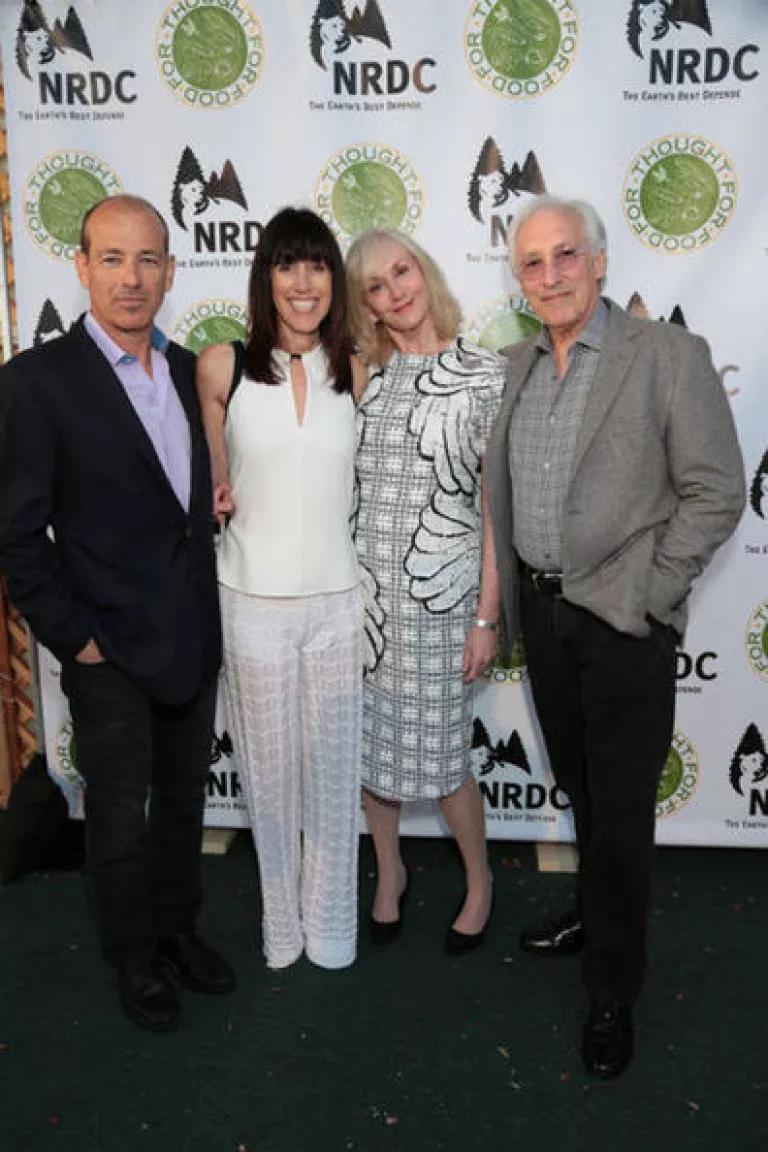"Thought for Food" benefit celebrates sustainable food movement & calls on Foster Farms to clean up its act

What we eat matters. The choices we make in the kitchen and supermarket aisle have a huge impact on our own health, as well as the health of our planet. As consumers, these choices can be a powerful tool for good that each of us can use every time we eat.
At NRDC, I am proud to be part ofa food and agriculture program that is helping farmers, lawmakers, buyers, and consumers make sustainable choices.
In recent years, our advocacy and litigation efforts have resulted in a landmark legal win against FDA over the misuse of antibiotics in factory farms, the banning of dozens of toxic pesticides called organophosphates that threaten human health, an overall reduction in pesticide exposure to children, and heightened consumer awareness of food waste on the farm and in the kitchen.
Last Thursday night, at NRDC’s “Thought for Food” benefit in Santa Monica, we celebrated those victories and looked forward to the important fights ahead:

The oneâofâaâkind event, held in the square that hosts Santa Monica’s weekend armers market, was co-chaired by Dayna and Steven Bochco & Cami and Howard Gordon.
The guest list included NRDC trustees Alan Horn, Laurie David, and Kelly Meyer, and celebrities Amber Valletta, Isabel Lucas, Michael Richards, Adan Canto, and Teddy Sears.





In the 1950’s, the Food and Drug Administration approved the use of antibiotics in livestock production to promote growth and prevent disease. This included various classes of antibiotics used in human medicine—notably penicillins and tetracyclines.
Today, routinely feeding antibiotics to animals that are not sick is a widespread practice in the meat industry. Some companies use safer practices. But many industrial farms feed chickens, pigs and cows antibiotics to make up for unsanitary and crowded conditions. In fact, a whopping 80 percent of antibiotics sold in the US are for use in farm animals, not humans.
Inappropriate human uses of antibiotics are widely known to breed resistant bacteria, but scientists and health care experts are increasingly pointing to livestock use as an important additional source of drug resistant pathogens. When animals are routinely fed antibiotics, those same antibiotics may not work when we need them most: when our kids get strep, our parents get pneumonia, or our loved ones face a life-threatening illness.
As Dr. Relman described, infections caused by bacteria resistant to antibiotics are harder to treat. This leads to longer illnesses, more hospitalizations, and, ultimately, the use of more potent antibiotics with potentially greater side effects, including death. At the same time, the development of new antibiotics has slowed to a trickle.
But there’s good news. And it’s being driven by us the consumers.
While sales of chicken, turkey, pork, and beef raised without antibiotics remain a small segment of the market, the healthy meat industry is experiencing double-digit growth rates. Companies like Chipotle Mexican Grill, Panera Bread, and Applegate, are making meat and poultry raised without antibiotics more readily available to American consumers. Collectively they sell hundreds of millions of pounds of healthy meat and poultry, raised with responsible antibiotic use each year.
The experience of these large food chains shows that reducing the non-therapeutic use of antibiotics in the domestic livestock industry is feasible, cost-effective, and embraced by American consumers. That’s why it’s particularly disappointing when companies like Foster Farms refuse to come clean about their antibiotics use.
Last year, the Centers for Disease Control (CDC) linked Foster Farms—the top chicken producer on the West coast—to an outbreak of dangerous antibiotic-resistant Salmonella Heidelberg. Just this week, the CDC reported that the outbreak of Salmonella Heidelberg linked to Foster Farms chicken is still making people sick—14 months after the start of the outbreak!
CDC reports that nearly two-thirds of the Salmonella sampled from afflicted patients tested resistant to one or more antibiotics that are important for human medicine. The agency notes that these are typically not the antibiotics used to treat severe Salmonella infections, but caution that “antibiotic resistance can be associated with increased risk of hospitalization in infected individuals.”
By spreading antibiotic resistant bacteria to our communities and kitchens, Foster Farms is contributing to the growing problem of antibiotic resistance and threatening our health. Unfortunately, Foster Farms largely keeps its antibiotics use a secret. Concerned consumers have little information about which antibiotics are being given to its birds and why.
This issue hit close to home for our California audience, who joined us on Twitter in calling on Foster Farms to come clean about its antibiotics use and publicly commit to only use medically-important antibiotics to sick birds and never for routine, non-therapeutic purposes.
You can do the same by tweeting: Hey @FosterFarms ! Come clean on antibiotics! #FosterHarms
It’s time to do the math and flex our consumer muscle: Meat + Drugs = Superbugs. Help us tell Foster Farms to clean up its act.
All photos by Alex J. Berliner/ABImages for NRDC.
